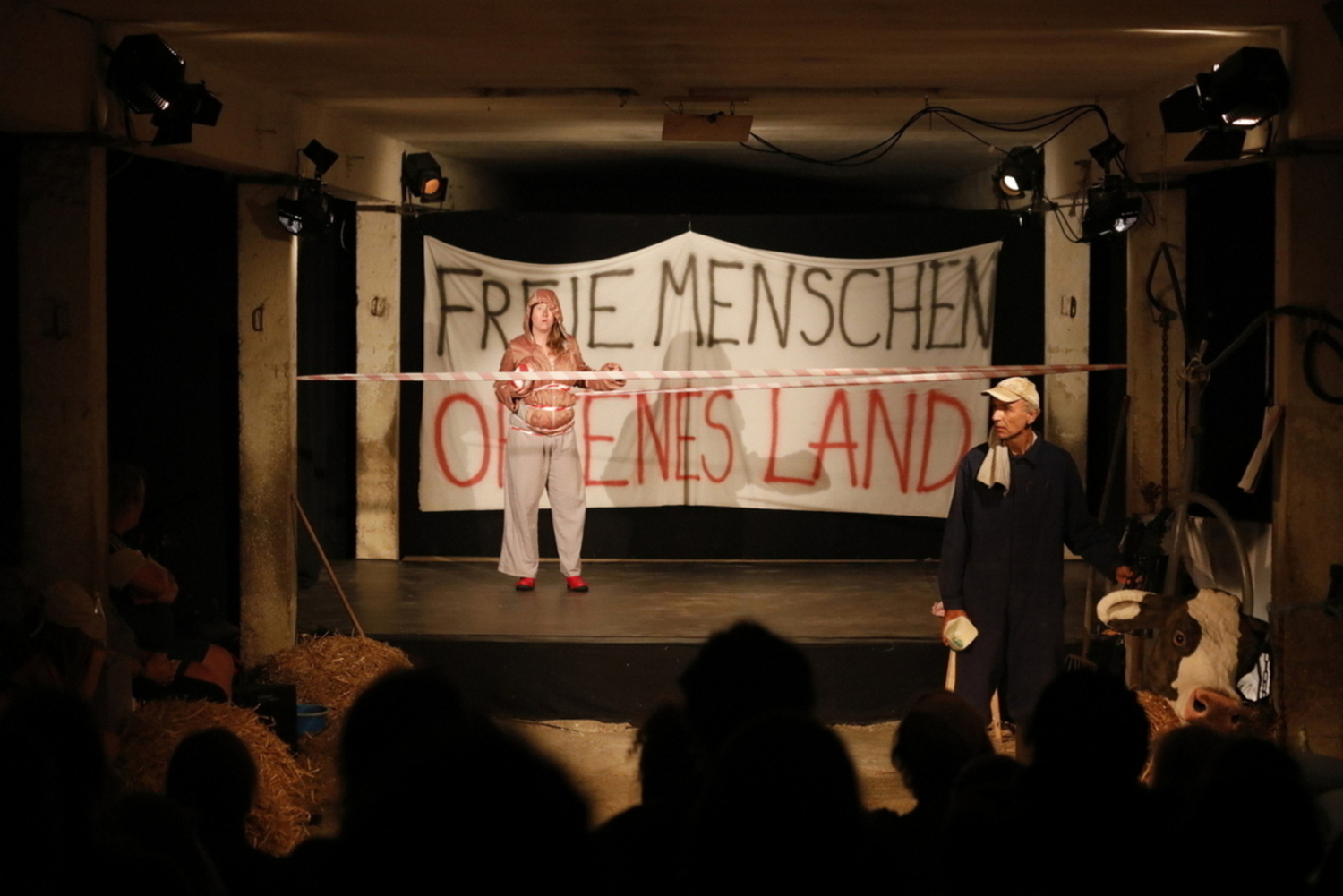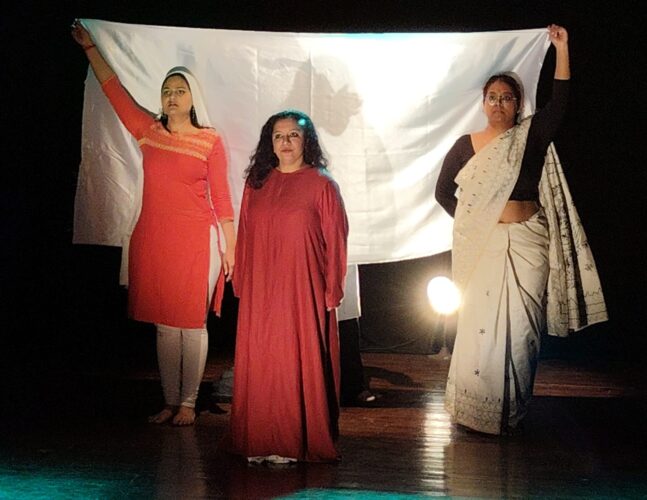Writer : Evan Khan
Group : N.S.D. Students Diploma Production
Language : Hindi
Duration : 80 mins
Date : 02 February 2025
Play : MURDA GHAR
The play presents the complexities of society, war, and humanity from a deep and existential perspective. In the play, spread over five scenes, a character named Martin plays the role of a clown and communicates directly with the audience, which makes the events of the play even more effective.
The story begins with a character named Isaac, who is sleeping in a chair in a closed morgue. Suddenly, there is a knock on the door and Ivan enters, revealing that war is raging in the world and winter is spreading everywhere. In the midst of war, hunger, and winter, comes Albert’s entry, who analyzes who can emerge victorious in the upper, middle, and lower class struggle.
Albert emerges victorious after the choices made by all three characters, but then comes a postman, who reveals Albert’s sins. Albert pleads his case and hires the postman to work in the morgue. The postman arrives with a letter and reaches a turning point, when he decides that he will stay in the morgue and repair the effigies.
The climax of the play comes when Martin returns from abroad after snatching a bottle of wine from a hungry child. Everyone is overwhelmed by hunger and tries to persuade Evan to eat. Finally, when everyone is ready to eat it, another Ivan’s inhabitant arrives, and the play ends where it began from.
The play highlights the struggles of life, hunger, politics, science, and humanity from a highly classical and existentialist perspective. Through dialogues, the play presents an in-depth analysis of the ironies, decisions, and consequences of human civilization, and the same makes it a unique experience of drama.



















 BURNT FLOWER ON THE BED
BURNT FLOWER ON THE BED












 BRACHLAND- FALLOW LAND
BRACHLAND- FALLOW LAND

















 BACCHAE
BACCHAE Direction & Adaptation : Ravinder Sharma
Direction & Adaptation : Ravinder Sharma






 BABUJI
BABUJI 




















